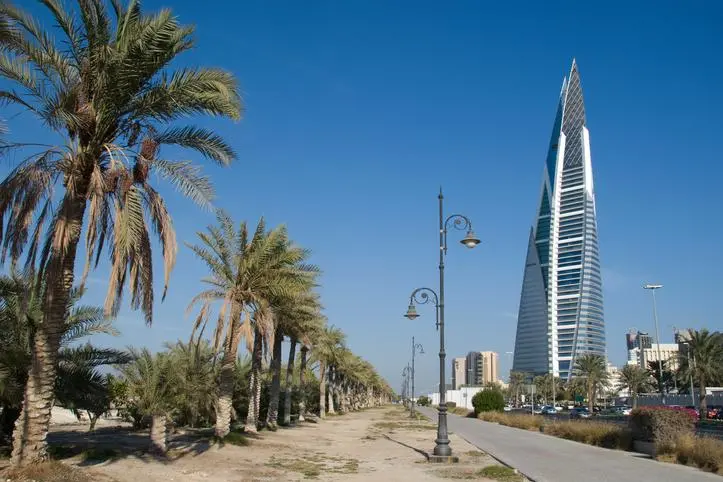PHOTO
Government ministers have pledged to draw up realistic approaches to increasing Bahrainisation levels in both the public and private sectors.
Five ministers and at least seven under-secretaries were speaking in Parliament yesterday as MPs discussed the findings of a year-long probe into Bahrainisation levels.
All 40 MPs were present at yesterday’s marathon session, which lasted 10 hours and included the approval of 37 recommendations.
Facilities
The 379-page probe report recommends having 90 per cent Bahrainisation in all companies with 50pc government shares, along with cancelling flexible work permits for expats, increasing Bahrainisation quotas at private medical facilities to 50pc, and allocating a special budget for full Bahrainisation in the public sector.
One of the recommendations also seeks action against six ministers for alleged violations. They are Labour and Social Development Minister Jameel Humaidan, Works, Municipalities Affairs and Urban Planning Minister Essam Khalaf, Electricity and Water Affairs Minister Wael Al Mubarak, Health Minister Faeqa Al Saleh, Education Minister Dr Majid Al Nuaimi and Parliament and Shura Council Affairs Minister Ghanim Al Buainain, who is politically responsible for the Civil Service Bureau (CSB).
“We are identifying the needs of the labour market and we are working to direct young Bahrainis towards jobs wanted by the private sector,” said Mr Humaidan during the session.
“There is no Bahrainisation percentage for what we want to achieve within the private sector, in total or individual establishments, we see the increase as a capability and we will work with employers – all of the work we have done or would do focuses on Bahrainis being the priority.”
The report mentioned that Bahrainisation in the private sector dropped from 19.3pc to 17.3pc last year, but Mr Humaidan said the figures were inaccurately analysed.
“The country is progressing and developing, therefore there is a need for expats in the construction sector which currently has 39pc of the 86,000 expat workforce,” he explained.
“So, the number of Bahraini workers is the same and is increasing annually by 2pc, but expats have also increased to meet this need.”
Mr Humaidan, who is also board chairman of the Labour Market Regulatory Authority (LMRA), said the minimum Bahrainisation quota of 25pc set by the LMRA for the private sector is based on varying establishments.
“The average figure is actually around 80pc,” he added.
“And no, it will not drop to 25pc because neither we nor the employers will allow that, and if it happens then we will take serious action.
“More than 24,000 Bahrainis were employed last year, among them were 9,400 entering the market for the first time.”
Mr Al Buainain, meanwhile, said the CSB hired 112 expats last year compared with 1,688 Bahrainis. He added that expatriate workers only made up 16pc of public sector jobs.
“This 16pc will be reduced drastically through a comprehensive government plan,” he pledged.
“We cannot simply fire expats when there are no capable replacements, however, this will eventually happen through extensive training and other schemes.”
Also present at the session was Dr Al Nuaimi, who explained that a drop in the percentage of Bahrainisation at the Education Ministry, from 83.4pc in 2018 to 80.53pc last year, was due to 4,500 employees going on early voluntary retirement or regular retirement.
“We terminated the contracts of 370 expats and employed 900 Bahrainis instead, while we had 4,500 leave the ministry on retirement,” he said.
“Our Bahrai-nisation level will reach 90pc by 2030, as for two years we have stopped hiring expats.”
While Bahrain University president Dr Riyadh Hamza said plans were in place to increase Bahrainisation in administrative jobs to 97pc by the end of this year from 90pc last year.
He also pledged to increase the level in academic positions from 66pc last year to 73pc by the year’s end.
Also present at yesterday’s session was Transportation and Telecommunications Minister Kamal Ahmed, who highlighted that his ministry had 97.7pc Bahrainisation.
However, Mr Ahmed, who is politically responsible for Bahrain Mumtalakat Holding Company, said the average salary figures mentioned in the report for expats working in Mumtalakat were parallel to what Bahrainis on the same level earned.
“There are more than 500,000 expats in the country and MPs should not be giving the wrong impression because we are working to attract foreign businesses and investments,” he urged.
“Gulf Air, for example, has 59pc expats as cabin crew or captains because we need different languages, but there are many vacancies we want Bahrainis to take up, especially as cabin crew, as operations expand and destinations increase.”
Mr Khalaf, meanwhile, explained that the Works, Municipalities Affairs and Urban Planning Ministry focused on only employing Bahrainis, but there were shortages in agricultural specialisations that needed to be filled by expats.
Training
“An example, the case of the expat receiving BD1,500 a month, today there are no qualified Bahrainis with degrees in agricultural engineering, and in specific the science related to palm trees,” he said.
“However, we are training Bahrainis to take up jobs as engineers in all fields – I started as a trainee in the ministry and was educated and trained by an expat and after seven years I got a senior post.
“We also have projects worth BD379 million across the ministry that are only handled by Bahrainis.”
Among the senior officials present during yesterday’s session was Health Ministry Under-Secretary Dr Waleed Al Manea who said one of the biggest challenges was shortage of nurses among the Bahraini workforce. “We need nurses and we are encouraging this at the school level, as we work to achieve 61pc Bahrainisation in nursing,” he added.
The 379-page probe report has been referred to the Cabinet for study and action.
mohammed@gdn.com.bh
© Copyright 2019 www.gdnonline.com
Copyright 2020 Al Hilal Publishing and Marketing Group Provided by SyndiGate Media Inc. (Syndigate.info).





















